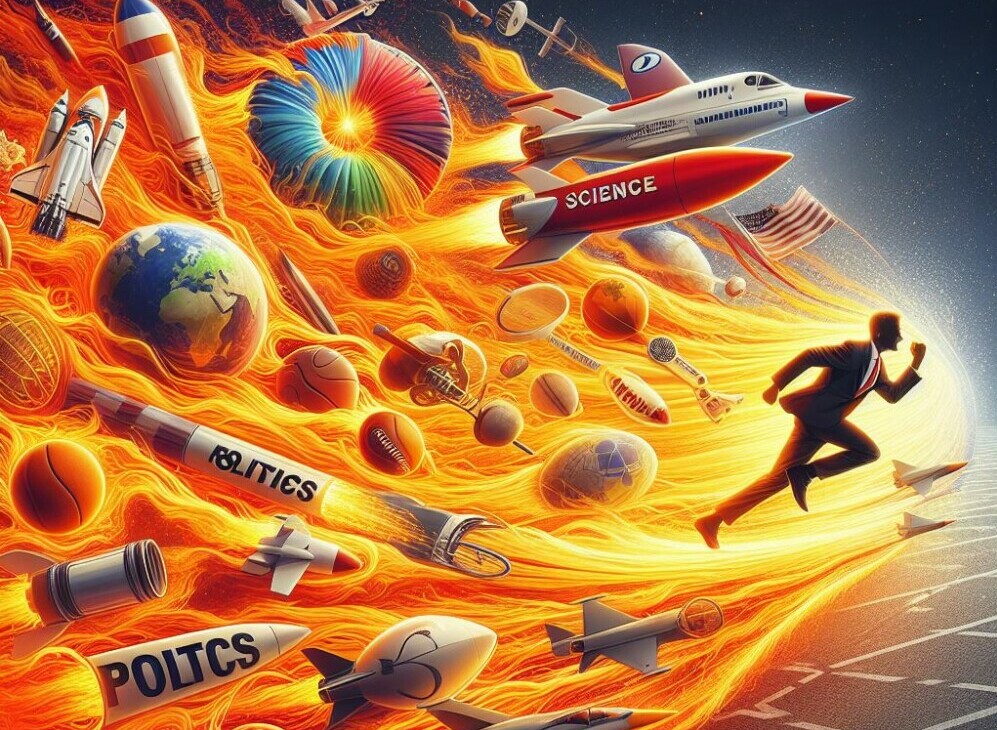After the diagnosis and trying to wrap my head around this whole new world, I felt both my daughter and I needed inspiration. I had spent too much time being negative and making mistakes. I started researching success stories of dyslexics. And boy, did I find them. But before I dive into that, let’s have a quick chat about dyslexia itself.
You see, dyslexia is more than a learning difficulty; it’s a different way of processing information, often affecting reading, writing, and spelling. But here’s the thing: it’s not about intelligence or effort. Dyslexics are just as smart as their peers; they simply process letters and words in a distinctive way. And you know what? That’s okay. Full disclosure: it has taken me quite some time to come to this point. That‘s okay too.
For anyone grappling with a recent diagnosis, particularly for their child, know that you are not alone. There’s a sense of companionship in the shared journeys of millions. In fact, scientific research on the dyslexic brain has uncovered unique strengths, like superior problem-solving skills and heightened creativity. These aren’t just comforting words; they are supported by studies that highlight how the dyslexic brain’s wiring is optimized for big-picture thinking.
Finding role models who have journeyed similar paths can be incredibly uplifting. It’s not just about the hurdles; it’s also about the improbable achievements despite them. That’s why the next part of our conversation is crucial; it’s about seeing potential where others see problems.
In the next section, we’re going to look at a few trailblazers in entrepreneurship. Folks like Richard Branson didn’t just succeed despite dyslexia; they used it as a stepping stone to redefine the business world. What you’re going to find out about these pioneers might very well change your view on the limits of success.

Pioneers in Entrepreneurship: Dyslexia Does Not Define Drive
When you encounter the stories of successful entrepreneurs, you’re going to find out about their determination, unique vision, and innovative spirit. These attributes are powerful, but they can be even more remarkable when you learn that many of these trailblazers are dyslexic. Their dyslexia didn’t hold them back; in fact, it often contributed to their exceptional approach to problem-solving and their relentless drive.
Take Richard Branson, for instance. This founder of the Virgin Group has never shied away from discussing his dyslexia. In my opinion, Branson’s success is a testament to turning perceived weaknesses into strengths. He’s credited his ability to simplify complex ideas and his unorthodox approach to business to his dyslexic thinking, which begs the question: Could Branson’s defiant approach to business stem in part from his dyslexic mind?
Then there’s the iconic Steve Jobs, co-founder of Apple. You may not have known, but Jobs also experienced dyslexia. His inventive vision and meticulous focus on design brought us products that revolutionized technology and how we interact with the world. The connection between Jobs’ dyslexic mind and his legendary foresight isn’t just coincidental; it showcases how alternative thinking processes can lead to groundbreaking innovations.
Don’t worry too much about the idea that dyslexia creates barriers. Walt Disney, a producer who enchanted the world with his animations and theme parks, is said to be among those who found ways to work around those very barriers. Disney’s imaginative storytelling and tenacity changed the face of entertainment and brought to life characters and stories that resonate with multiple generations.
Fashion industry titan Tommy Hilfiger is another figure who adapted his approach due to dyslexia. Hilfiger has spoken about how he uses colors, patterns, and shapes—elements that don’t rely on reading or writing—making them an integral part of his expressive and successful designs. Here, dyslexia may have honed a keen visual sense that became crucial to Hilfiger’s branding and global recognition.
As we explore the next section, we continue to uncover the indelible marks left by individuals who transformed their dyslexic challenges into distinctive advantages. Get ready to be further inspired by those who made significant historical, scientific, and athletic contributions, proving that the dyslexic mind has no boundaries when it comes to achieving greatness.

Dyslexia in Science, Politics, and Sports: Blazing Trails of Excellence
When we think of scientific innovation, political leadership, or athletic prowess, we often assume these feats require a certain type of intelligence that is out of reach for those with dyslexia. However, history tells us a remarkably different story. Dyslexic minds have not only contributed to these fields, they have revolutionized them.
Albert Einstein’s name is synonymous with genius. Despite his challenges with traditional learning often associated with dyslexia, his ability to think in highly creative and abstract ways allowed him to unravel the mysteries of the universe. His theories of relativity turned the world of physics on its head, proving that dyslexia was not a barrier to his monumental scientific contributions.
Figuring out ingenious strategies and leading a nation is no small feat, and it becomes even more impressive when achieved by someone with dyslexia. George Washington, a founding father and the first President of the United States, had to overcome his learning difficulties to lead the country through its formative years. His dyslexia didn’t hinder his ability to strategize and govern; instead, it may have honed his problem-solving and leadership skills.
The realm of sports also celebrates a champion who faced dyslexia head-on: the legendary boxer, Muhammad Ali. Known for his quick feet and even quicker wit, Ali’s dyslexia didn’t stop him from becoming one of the most celebrated athletes in the world. His extraordinary physical prowess and verbal dexterity in ‘trash talking’ opponents hint at the alternative cognitive advantages of dyslexia, including enhanced motor coordination and creative thinking.
These iconic figures highlight that being dyslexic need not limit aspirations or achievements. In fact, many dyslexics find that their distinctive way of interpreting the world can lead to exceptional accomplishments. So let’s keep the inspiration rolling as we turn the spotlight on another arena where dyslexics have made their indelible mark: the entertainment industry.

Spotlight on Entertainment: Dyslexic Stars Who Dazzle On and Off the Stage
It’s clear that dyslexia doesn’t hold you back from stepping into the limelight and shining. Cher, an entertainment powerhouse, didn’t let dyslexia define her story; she’s known for her iconic songs and dynamic performances on stage and screen. This is a testament to the fact that dyslexia, while challenging, can coexist with extraordinary artistic talent.
I’m here to tell you about Whoopi Goldberg, who turned her dyslexia into a comedic advantage, showing the world that unique thinking can lead to unparalleled creativity. Her achievements in film and television highlight the diverse ways dyslexics continue to shape the world of entertainment.
Keira Knightley, whose battle with dyslexia as a child may have seemed daunting, now stands as an acclaimed actress with numerous awards under her belt. Her story serves as a beacon of hope for young dyslexics with dreams of acting.
In my opinion, the entertainment industry is richer for the varied perspectives that dyslexic individuals bring to it. Their success stories hammer home the message that dyslexia is not a roadblock to success, but perhaps a different route to it. Remember, these individuals haven’t just learned to cope with their dyslexia; they’ve harnessed it, turned it on its head, and used it to fuel their creative fires.
So, I really hope that you, and especially your kid, are inspired by these tales of triumph. Don’t worry too much about the frustrations that may come with dyslexia. Instead, choose something that resonates with you or her—be it art, science, business, or sport—and chase it with the relentless spirit exemplified by these individuals. Remember that your first attempt doesn’t need to be your last; you can always adjust your approach down the road.
It’s not about perfection, it’s about persistence. And these showstoppers from the entertainment industry prove just that. Let their stories remind you both that there’s a lot of opportunity in this world, and dyslexia might just be the unique lens that reveals it.
Feel free to comment below on your experiences. We look forward to hearing from you.
Dee_J


Hi Dee,
Thanks for a really positive article, I am not dyslexic myself but I have a friend who has recently been diagnosed and I am trying to understand their situation better. There seems to be lots of appreciation now for how being dyslexic can offer an alternative way of thinking rather than it being all bad but do you have any advice on how to start the process from initial diagnosis to being able to start seeing the positives, it seems a bit of a big step for my friend at the moment. Everyone appears to be either really negative about the condition or really positive like your article (which was a great read) but I couldn’t find much information on how to help someone start the transformation. Any ideas or guidance much appreciated
Pete
Hi Pete.
Thank you for reaching out. How old is your friend? First and foremost, the best thing to do is to accept, appreciate, and support. I can tell you from my experience that it took me a long time to learn this. I fell under the category of dyslexia being a secret and something to be ashamed of. I am glad that I am out of this.
I would encourage you to take a look at the diagnosis or ask your friend about it. Dyslexia comes in many forms. When you can borrow down the type of dyslexia then it will out you in a better position. For example, phonological means the very basis of reading and sounding letters will need attention and you may have to find alternative ways of learning or teaching this. Whereas someone with visual dyslexia may benefit from larger prints or colored fonts.
There is so much to learn about this topic. The more I research the more there is to learn. I feel I have only just scratched the surface. I do hope that I have helped with your question a bit.
Please feel free to reach out if you have any more questions and I will try my best to assist.
Dee_J.